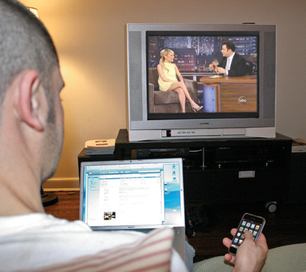come as you are
start small: simple body movements, ideas and ways to help you feel better on the regular
|
I was interested to see yesterday’s NPR article "The Millennial Obsession With Self-Care." I’m in the health & wellness field after all. The term self-care has become a trendy term, yet there is a reason for it - it is an important piece of every day life that we often ignore until we're whipped out and exhausted. According to the article, the new generation is focusing a lot of their time and resources on self-care.
Millennials aren’t the only generation to do self-care, though this article suggests they’re making it more of a priority than past generations. In fact, most of my massage clients are Gen X’ers and Baby Boomers. All the while, many of my yoga students are Millennials. Millennials approach self-care (as the article mentions) in a bit of a different way than generations past - it’s more phone and internet induced. While there are cool apps and internet self-care techniques that I know very little about, I still think I’m a bit old school in my self-care approach. It could be the Gen X’er in me but rather I think it is because of what I do. I teach yoga and give therapeutic massages for a living. Both of which are phone-free (with the exception of the music coming out of my phone during those sessions). “In 2015, according to the Pew Research Center, more millennials reported making personal improvement commitments than any generation before them. They spend twice as much as boomers on self-care essentials such as workout regimens, diet plans, life coaching, therapy and apps to improve their personal well-being. They've even created self-care Twitter bots.” Taking time out for yourself is super important now more than ever. Our phones, social media, the internet, the news, our President/gov’t are huge stressors these days. You don’t want to burn out from social activism, your job, relationships, or even from your friend’s constant social media updates. A break from these things can help energize and re-focus on yourself. My suggestion is to go beyond a break. Be active in your self-care. Do something specific, thoughtful and intentional for you and your wellbeing. Self-care looks different to different people. I wrote about one of my favorite self-care techniques (under the guise of mindfulness) last year here. My favorite well-being plan is a free one too! I bike to a park, take a walk and read a book, or set up a picnic with friends. There is no wrong way to do self-care. But what I will say before you suggest to yourself 2 bottles of wine while binge watching a TV show alone for 8 hours (I've done it many a time) as your self-care technique, make sure you’ll feel good about your idea/plan in the long run. So, how do you find out what kind of self-care idea will work for you? Ask yourself a few questions before you decide what wellbeing activity might be the best: Will I feel:
xo, Liz
2 Comments
 Back in the day when I worked in corporate, multitasking was seen as a positive. I would go to a job interview and tell the interviewer my "best" quality was the ability to multitask. I knew in my heart that while I wanted it to be my best and I tried, it wasn't. At the time, employers wanted their perfect employees to be perfect multitaskers. Quite frankly, IMHO, multitasking is nearly impossible and it is not a real quality, nor is it being mindful. Imagine if I gave a massage or taught yoga while checking my phone and making a grocery list? No way! I am sure some of you are saying "but I can actually multitask and I'm really good at it!" Naw....not really true. Mallory Creveling for Life by Daily Burn wrote an article posted on CNN entitled, "Fight Stress, Boost Productivity with Single Tasking." Spoiler alert: Multitasking doesn't really work...well. It takes a lot of brain bandwidth with reduced attention and efficiency: "...the truth is our brains can't actually multi-task....We finish about 50 percent less when attempting to tackle a few duties at once, instead of focusing on each one individually, says James Rouse, naturopathic doctor, author of Think Eat Move Thrive and co-founder of Healthy Skoop." To a degree, you HAVE to multitask in certain situations - like a bartender making a drink for one person while someone else is shouting at them to make another drink and a third person is telling them about their recent break up story. For the most part you don't need to actually multitask; you are at your best when being mindful and focused on one thing at a time. One of my massage clients was recently telling me he massages his upper back with a tennis ball while driving. I immediately made that yikes face. This is definitely not the first time I heard of a client doing that exact same thing. There are a few things not ideal about this situation but the main points are: If you're trying to massage yourself while driving, you're 1) probably not driving very well - so it's dangerous; and, 2) not really doing much massaging since it's stressful to drive. I suggested taking the time whenever he has 10 free minutes - perhaps in the beginning or end of the day to roll on the tennis ball on the floor or against the wall. That way, the self-massage will be the only thing actually happening in that moment; therefore, the massage will be more effective (results). In addition, it'll be less stressful to massage yourself while relaxing at home instead of driving to a job in traffic. I brainstormed a few ways to help single-task, allowing a more mindful approach to one main task. Some of these are similar to what I talked about in my "Savoring the Weekend" blog post:
What are some things you can do to single task instead of multitask? xo, Liz I moved from Boston to Rochester only four months ago. One of the best things about Rochester is how much less people use their smartphones compared to Bostonians. I have my thoughts as to why I think Boston is staring at their phones a lot more, but my conjecture is not the point of this blog post. This past Labor Day weekend I went to the woods of Denmark, Maine near the White Mountains. Needless to say there wasn't much cell service. I opted to put my cellphone on airplane mode (as did most folks). I only checked it once to see if there were any "emergencies" (there rarely are, let's be honest), and to send a few "I'm alive" texts. The majority of my time was spent outside in the woods hiking, swimming, canoeing, doing yoga, eating really really good food with strangers and old friends - cellphone-free. I was being mindful and present this weekend without even trying to be. The New York Times wrote an article about the overused buzzword last year entitled, "The Muddled Meaning of 'Mindfulness,'" In it, the article quotes Jon Kabat-Zinn, a Zen Buddhist who summarizes modern day mindfulness as “'The awareness that arises through paying attention on purpose in the present moment, and non-judgmentally.'” This weekend was the first time since I moved back to Rochester that I forgot about the busy/distracting act of missing Boston. Instead, I was being with everything around me. It was because I was in nature sans phone. My biggest challenge here in Rochester is my lack of connection to this lovely Flower (Flour) City. I want to get to know people, places, sites, the culture, etc. But I have been trapped in a cycle of desperately trying to stay attached to Boston via social media & texting. Using my smartphone as a security blanket, I am missing relationship opportunities and experiences here in Rochester. So, how do we savor the nature-filled/mindfulness (fill in the blank) weekend and stay detached from the phone so we can relate to one another more (in person & in real life)? Below are a few (FREE!) things I try to do when I'm feeling distracted and want to refocus on the now:
Maine. The way life should be.
[Photo from this weekend] |
Liz LaneriArchives
June 2017
Categories
All
|
